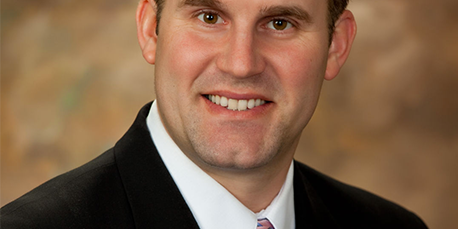By: Noah Hultgren
West Central Tribune
Published September 17, 2016
When it comes to farming, it seems the critics always have the easy answer. They portray this line of work as if every day brings blue skies and no worries. The reality is the farming business comes with a fair share of challenges; chief among them is the unpredictability of weather and markets. Anything can and will happen.
 It is why farmers purchase crop insurance to help manage the risks involved. It is why farm policy is essential. Even then the critics try to negatively paint crop insurance as a giveaway or that it just encourages farmers to take unnecessary risks. This couldn’t be farther from the truth.
It is why farmers purchase crop insurance to help manage the risks involved. It is why farm policy is essential. Even then the critics try to negatively paint crop insurance as a giveaway or that it just encourages farmers to take unnecessary risks. This couldn’t be farther from the truth.
This is equivalent to saying that homeowners buy insurance hoping their houses will burn down. Or, car owners who purchase insurance are hoping to be in an accident so they can collect an insurance check. Insurance — in whatever form — enables a person to recover from calamity. It doesn’t make you whole; it merely helps you begin again. It provides some predictability in an unpredictable profession.
It was this uncertainty that made me hesitant to get into this profession even though I grew up on a farm. I watched the turmoil of my neighbors who endured the harsh conditions of the 1980s, which caused countless farmers to go under. The national economy was in the tank and the farm economy was in even worse shape. Banks were essentially deciding who would make it and who wouldn’t in an effort to stay afloat, as well.
My main thought watching all of this unfold, as a young person and seeing the strain it put on my own parents and grandparents, made me want to run far away from agricultural production. I went off to college to get a degree in business management instead and though my brother kept encouraging me to come back to the farm, it wasn’t until I met my future wife that it clicked for me. That’s when I knew I wanted to continue the tradition.
Today, I farm with my parents and brother. My wife and I, along with our three daughters, live in the house that my grandparents built. One day I hope my girls will continue the farming tradition as well, but I am managing my expectations. I realize that my brother and I are the exception and not the norm.
Most kids don’t return to the farm, which is evident by the average age of the American farmer. It’s 58 years old and it keeps creeping upward. This is not a good trend for American agriculture and something that should worry all of us. If we lose our farmers then we lose our ability to grow our own national food supply.
We need the next generation to be involved in production agriculture. But we cannot expect them to even consider it when this way of life seems to always be under attack, making an already challenging profession even more difficult. Contending with bad weather and bad markets pales sometimes to the uncertainty that comes out of Washington, D.C., through tax policies, regulations, and the threat of policymakers arbitrarily cutting the very tools that farmers need to survive hard times: crop insurance and farm policy.
If we want to continue to meet the needs of feeding this nation and the rest of the globe, then we need to support our young farmers and ranchers. That includes maintaining our investment in crop insurance and farm policy.
Noah Hultgren is the president of the Minnesota Corn Growers Association and a fourth-generation farmer from Willmar. He grows corn, sugar beets, sweet corn, soybeans, kidney beans, and alfalfa.

